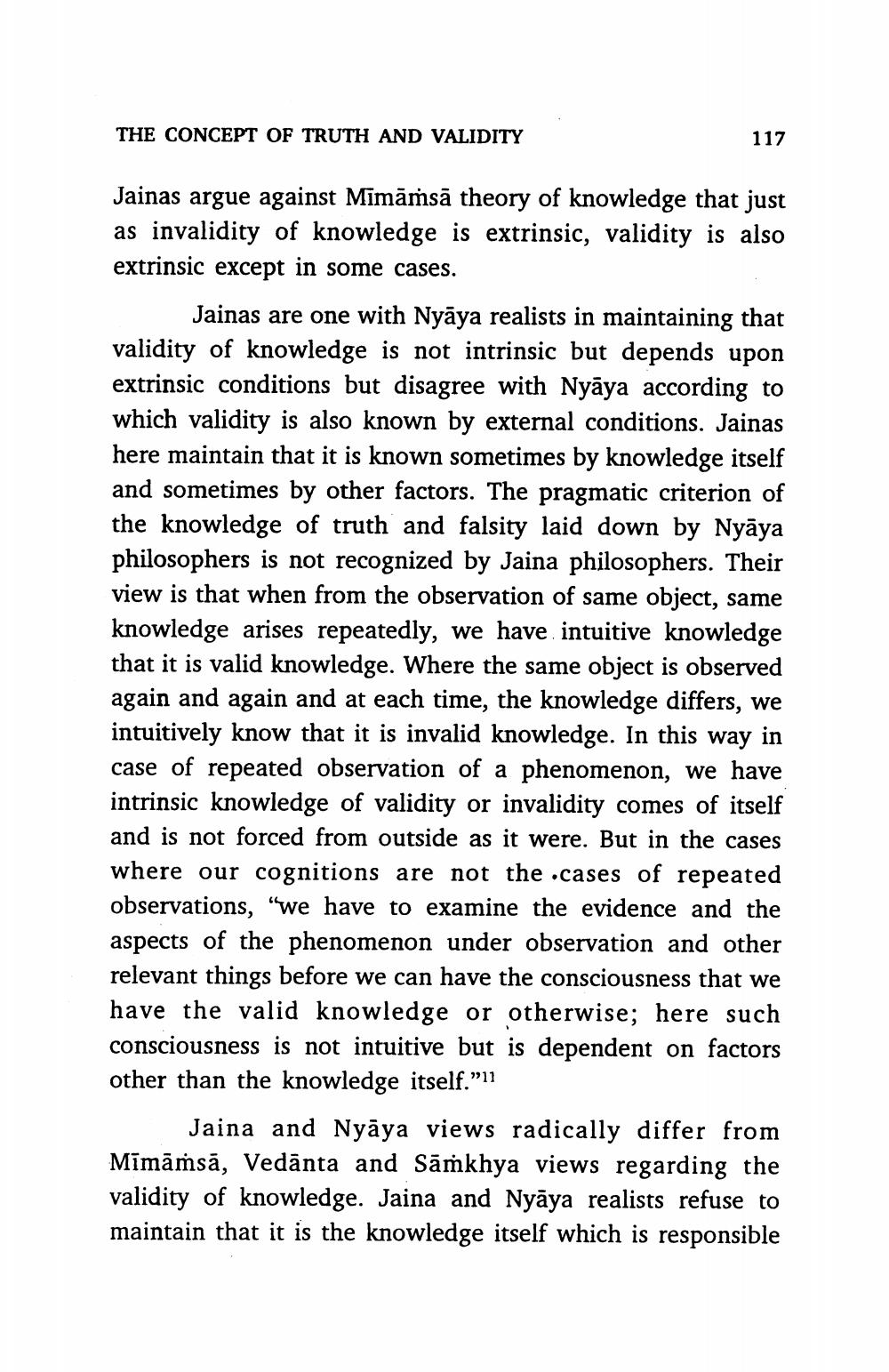________________
THE CONCEPT OF TRUTH AND VALIDITY
117
Jainas argue against Mimāṁsā theory of knowledge that just as invalidity of knowledge is extrinsic, validity is also extrinsic except in some cases.
Jainas are one with Nyāya realists in maintaining that validity of knowledge is not intrinsic but depends upon extrinsic conditions but disagree with Nyāya according to which validity is also known by external conditions. Jainas here maintain that it is known sometimes by knowledge itself and sometimes by other factors. The pragmatic criterion of the knowledge of truth and falsity laid down by Nyāya philosophers is not recognized by Jaina philosophers. Their view is that when from the observation of same object, same knowledge arises repeatedly, we have intuitive knowledge that it is valid knowledge. Where the same object is observed again and again and at each time, the knowledge differs, we intuitively know that it is invalid knowledge. In this way in case of repeated observation of a phenomenon, we have intrinsic knowledge of validity or invalidity comes of itself and is not forced from outside as it were. But in the cases where our cognitions are not the .cases of repeated observations, "we have to examine the evidence and the aspects of the phenomenon under observation and other relevant things before we can have the consciousness that we have the valid knowledge or otherwise; here such consciousness is not intuitive but is dependent on factors other than the knowledge itself.”11
Jaina and Nyāya views radically differ from Mīmāṁsā, Vedānta and Sāṁkhya views regarding the validity of knowledge. Jaina and Nyāya realists refuse to maintain that it is the knowledge itself which is responsible




